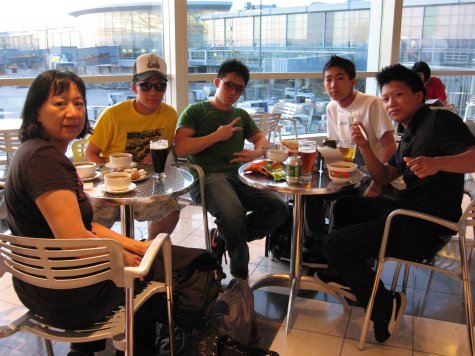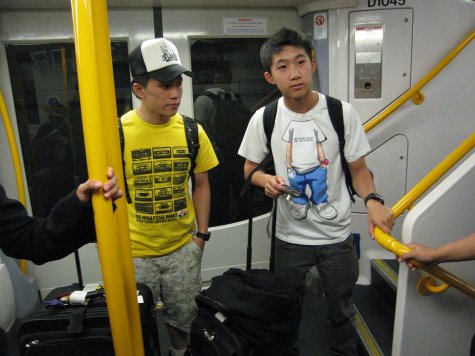Air Canada suggested that we board the flight from Toronto to Vancouver, and get the e-visa just before boarding on the next leg. At the Maple Leaf Lounge at YVR, the airline had to try the online application multiple times before achieving success. In the meantime, we were still catching up on being a family of six again, and enjoy the complimentary food and beverages. During the layover, our sons had time to taste all of the snacks, and sampled the variety of beer, wine and liquor (offsetting for my many years of non-consumption in airline transfers).
Vancouver to Sydney is about 15 hours on the plane. Crossing over the international date line resulted in us completely missing Canada Day. I did my usual strategic sleeping and watching movies. The flight wasn’t completely full, so we rotated into two-seat sleeping positions. From my previous trips to Australia, I expected the aircraft disinsection procedure just before landing — flight attendants on a 2-minute walk down the aisle with insecticide aerosols — and recommended that our family stay with heads under blankets until they were done.
The airport in Sydney is south of the city. Our hotel was north of the city, across the harbour. We bought tickets for the airport link and a 7-day orange travelpass for trains, ferries and buses. From the airport terminal, the first train took us to Sydney Central station.
We had left Toronto on an early summer evening flight to Vancouver, connected outbound from Vancouver almost at midnight, and boarded Sydney trains just after rush hour of a southern hemisphere winter morning. I drew attention wearing summer shorts and sandals. Donning a jacket and socks wasn’t quite warm enough, so it would be long pants for the week in Sydney.
We would ride the CityRail Northern line frequently in the days to follow. Sydney’s transit maps are relatively straightforward. Continue reading “2009/06/30-07/02 YYZ-YVR-Sydney-Macquarie Park: planes, trains and buses“







